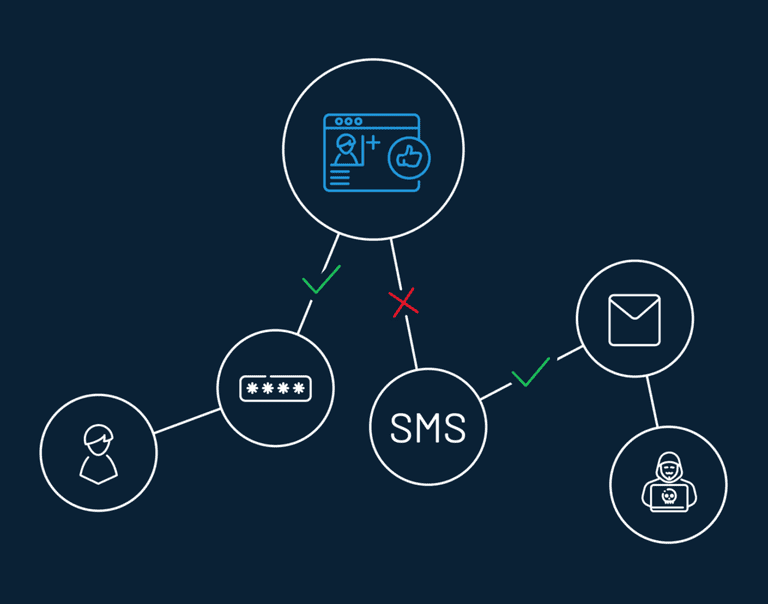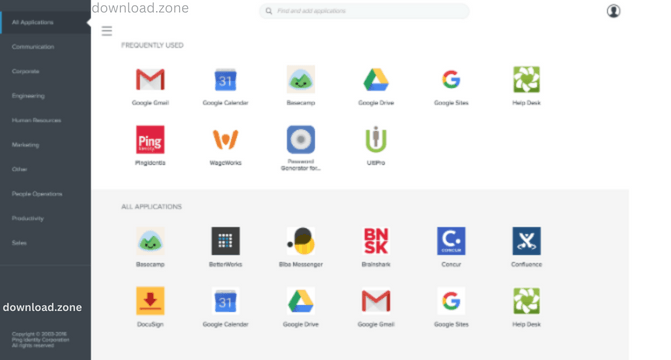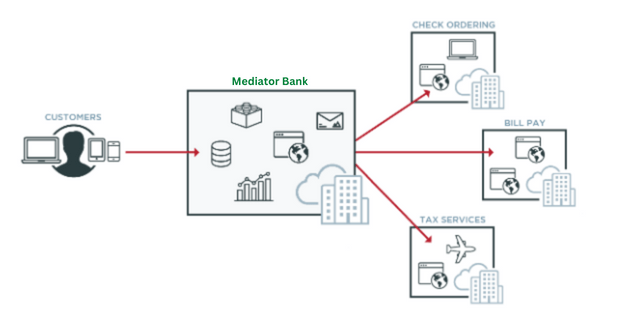8 Benefits of Single Sign-On and Why It’s Importance For Your Business
Even though single sign-on (SSO) has been commonplace in a lot of different companies for years, the significance of this feature is sometimes disregarded and undervalued. It is essential to have seamless access to multiple applications from anywhere and on any device in order to maintain business efficiency and provide a seamless experience for customers. With many businesses moving to the cloud and taking advantage of third-party services, this is becoming increasingly important.
Continue reading to gain an understanding the importance of single sign-on is and the many benefits that this amazing technology offers to organizations as well as end users.
What is SSO and how does it work?
Single sign-on allows users to safely access numerous apps or systems with one set of credentials. Once SSO is set up, employees or consumers can sign in once to access all authorized apps, websites, and data from a company or group of companies.
SSO relies on a trust relationship between the identity provider (IdP) and the service or application the user wants to utilize (SP). Instead of providing passwords, the IdP sends an assertion (typically using SAML) to authenticate the user for the SP.
If the user is not already signed in, here is a simple explanation of how to sign on:
- The user navigates to the site or app they want to use (the SP).
- The SP sends a request to the SSO system and sends the user there (the IdP).
- The user is asked to prove who they are by giving the IdP the credentials it needs, such as a username and password.
- Once the IdP checks that the user’s credentials are correct, it sends an assertion back to the SP to let it know that the authentication was successful. The user will then be able to use the application they want.
Once this is done, any other SPs the user wants to use won’t ask for a username or password because the user has already been verified by the IdP.
How SSO is important for every businesses?
The primary objective of a single sign-on is to enable users to log in to separate apps and resources that are part of a known and trusted group while only needing to remember one set of credentials. Because of this, it is considerably simpler for the user, who does not have to sign on several times, and it is more secure for the company, because there are fewer opportunities for a password to be misplaced, stolen, or reused.
Top Benefits of SSO-Single Sign-On
Your customers and employees probably don’t like having to remember a lot of different passwords for different applications. And if your IT team has to support multiple apps, setting up, changing, and resetting passwords for users takes a lot of time, IT resources, and money that could be spent elsewhere.
Here are some reasons why you should start using SSO right away in your business.
1. Better security
One of the most common misconceptions about SSO solutions is that they make systems less secure. This false belief is based on the idea that if a master password is stolen, all accounts that use it will be open to the public.
But the truth is that, with good practices, SSO makes it much less likely that a password-related hack will happen. Users are more likely to choose strong, hard-to-guess passphrases because they only need to remember one password for all their apps. They are also less likely to use the same password or write it down, which makes it less likely that someone will steal it.
Using SSO and multi-factor authentication together is a great way to add an extra layer of security (MFA). With MFA, a user must sign in with at least two pieces of information to prove who they are, like a password and a code sent to their phone.
Risk-based authentication (RBA) is another good security feature. In RBA, your security team uses tools to watch user behavior and context to spot any strange behavior that could be a sign of an unauthorized user or cyberattack. For example, if you see that a user has tried to log in multiple times but failed or used the wrong IP, you can require MFA or block the user completely.
2. Boosts productivity
Single sign-on makes workers more productive by cutting down on the time they have to spend signing in and dealing with passwords. During the workday, employees need to use a lot of different apps, so they have to spend time logging in to each one and trying to remember which password goes with which. They also have to change and reset passwords when they forget them. The time we waste adds up.
Users who only have to remember one password to get into all of their apps can save a lot of time. They won’t need password support as often, and SSO solutions often give them a handy dock where all their apps are right at their fingertips.
3. Lowering IT costs
A recent study by Gartner shows that password problems are the cause of more than half of all help desk calls. In another study by Forrester, it was found that organizations spend up to $70 per fix to reset passwords. The more passwords a user has, the more likely it is that they will forget them. SSO lowers the cost of the help desk by reducing the number of passwords needed to just one.
Some organizations have also been putting in place rules about password length and special characters, which may make it harder for users to remember their passwords. This is a trade-off for more secure passwords in exchange for more password resets. Some of these costs can be cut down with SSO.
4. Good job satisfaction among employees
Employees are using more and more apps at work to do their jobs, and each third-party service needs a different username and password. This puts a lot of pressure on workers and can be annoying. Notably, 68 percent of workers have to switch between an average of ten apps every hour.
As we’ve already talked about, only having to sign on once makes employees more productive, but it also makes them happier at work because they can work without being interrupted, get to everything they need quickly, and use all the helpful third-party apps that make their jobs easier. Easy access is especially helpful for employees who work on the go or from more than one device.
5. Delighted customer service experience
One of the best things about implementing SSO is that it makes the customer experience better. A recent study found that up to 18.75% of users abandon their shopping carts because they forgot their passwords or couldn’t reset them. Whether you’re a store, a healthcare provider, or a bank with multiple services, SSO will help you solve these problems and give your customers access to everything they need with just one sign-on. They’ll have a better time because there will be less friction and stress. Immediate benefits of improving user experiences include customer loyalty, higher conversion rates, and better brand visibility.
6. Wider acceptance
There’s no doubt that a new app with a hard-to-use sign-up process will not be as popular as one that makes things easier for users. Because of how competitive the market is today, customers will always have another choice if yours gives them too much trouble or confusion. SSO makes it more likely that people will choose your app and use it more.
7. B2B collaboration gets stronger
SSO is also a very important part of the success of B2B partnerships. Multiple businesses work together to make and sell everything from cars and phones to food and other necessities for the home. For this type of business collaboration, employees from other companies need to be able to access certain data, digital tools, and applications. Federated SSO, also known as federated identity management, can help businesses work together more efficiently and effectively by connecting their identity systems.
Businesses also often work together to offer customers similar services. Setting up federated identity management across security domains makes it easier for customers to use a single account to access services from different companies that are related.
8. Tighter compliance
Companies are required by laws like Sarbanes-Oxley and HIPAA to put security measures in place to protect data from cybercriminals and from being used or shared without permission. Single sign-on is often used as part of a larger identity and access management (IAM) solution, which can help you meet regulations that require strong authentication and access control. IAM can also help businesses meet other legal requirements related to privacy, activity tracking, and single logout.
Conclusion
Single sign-on is good for everyone who uses a network or web app because no one likes to enter their credentials every time. Users can get to work right away without putting their security at risk.
By putting in place an integrated SSO system, you can protect your network from cyber threats and attacks with single sign-on. Not only does it make it easier for you and your team to remember passwords, but it also cuts down on the number of times you have to call the IT department to fix security problems with passwords.
ad







Comments are closed.